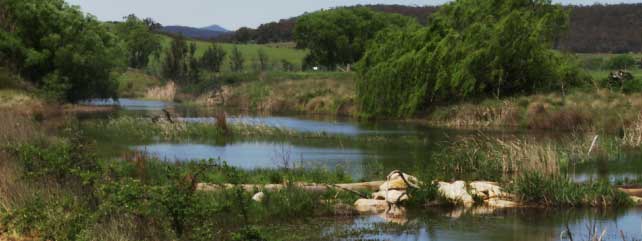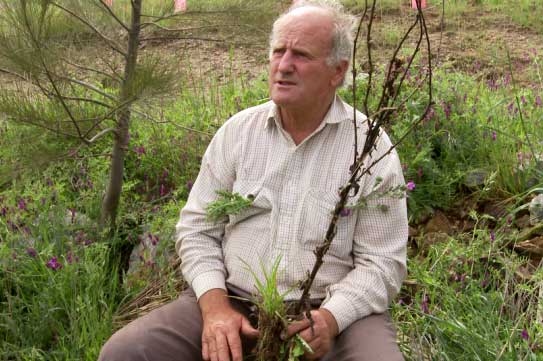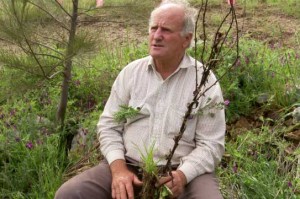Peter Andrews on Weeds

Peter Andrews the creator of Natural Sequence Farming talks to us about the role of weeds in a natural system.
Sitting down on a stump with sprig of Patterson’s curse – a noxious weed – proudly tucked into his top pocket, Peter reckons the authorities have got it all wrong. He’s a champion for weeds and doesn’t care what people think of him or his radical views on land management. He’s had his critics. He’s used to them. Sitting near the creek that he has re-engineered to follow the natural rhythms of nature at Mulloon Creek Natural Farms near Canberra, Peter allows weeds to grow on this property unchecked. Its an experiment that is closely monitored by the authorities in Canberra.
Although he doesn’t like to be confused with permaculture – his views are in fact similar. He defines weeds as a repairative mechanism. A plant with a natural instinct to germinate when the soil is degraded, trashed or disturbed and begin the pioneer process of fixing the soil so other plants can grow in succession. He believes weeds are part of the “fix” and are not the problem and should not be eradicated by poisoning them with chemicals.
Working with weeds by slashing them with a tractor or mower when they grow to a certain height is the way to improve soil fertility. Returning carbon back into the soil is the answer. He believes farmers are so conditioned to believe that herbicides are the solution to the weed problem that they fail to understand or appreciate the way the natural system works.
In this video clip, Peter explains his views on how weeds are eventually replaced by grass and illustrates the case for Victa – Australia’s popular lawn mower that had a unique slogan back in the 1960’s in its television advertising campaigns dubbed “Get a Victa – Turn Grass into Lawn.” This slogan was a pitch to sell lawn mowers but the slogan held a powerful theme that was not well understood by the Australian population. How grasslands are created by constant slashing of your field, allowing the slashed weeds to fall and decompose and gradually over time and repeated slashing – to build soil fertility.
[youtube]http://www.youtube.com/watch?v=qjlia4DjgKg&feature=player_embedded[/youtube]
Peter is an avid horseman. When he was a young man he went to England to study the land management techniques of champion horse breeders. Like many people he thought the solution to breeding champions was lush green pastures. He asked an old breeder with many grand national winners to his credit how much chemical super-phosphate he applied to his field. The old man said none. Occasionally he applied a bit of Kelp. The solution the old man said was to have as many different weeds on your property for the horses to nibble on. Any less than 50 weeds was considered a pasture in decline. Peter always remembered that lesson in plant diversity.








Recent Comments